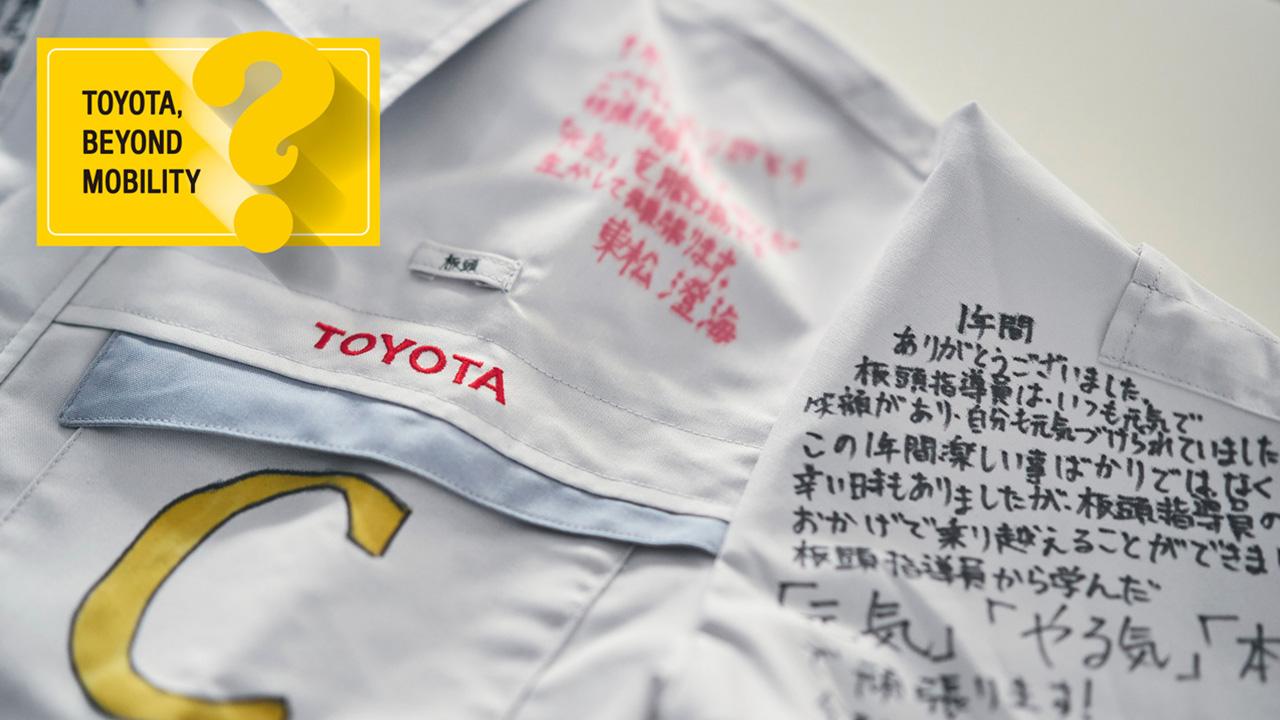
A series showcasing Toyota's research in non-automotive fields. This time, we look at a Toyota school that is full of surprises!

A school where you don’t pay tuition.
Instead, students receive a monthly salary (a stipend of around 160,000 yen) and even twice-yearly bonuses. Moreover, the teaching staff are Toyota employees assembled from around the company.
This facility in Toyota City, Aichi, is nothing like the average high school.
What is it all about? The story holds even more surprises...
Students or staff?
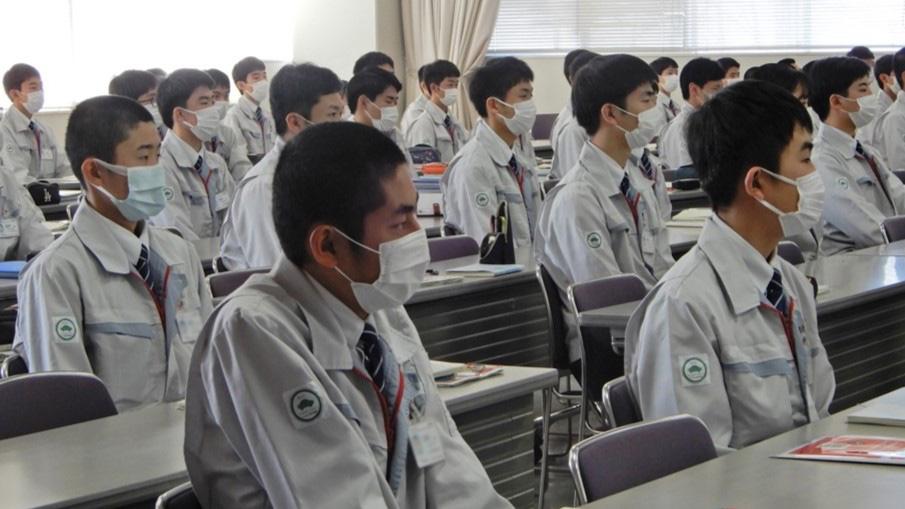
The Toyota Technical Skills Academy is an in-house facility for training technicians. Its roots lie in the Toyota Technical Youth School set up by company founder Kiichiro Toyoda in 1938.
Pupils are referred to as “trainees” and treated not as students but as Toyota employees. At the entrance ceremony, they receive letters of appointment like other staff. Their adolescent school endeavors are regarded as work, for which they receive pay as a student stipend.
On graduating, they obtain a high school diploma and are assigned to their respective workplaces.
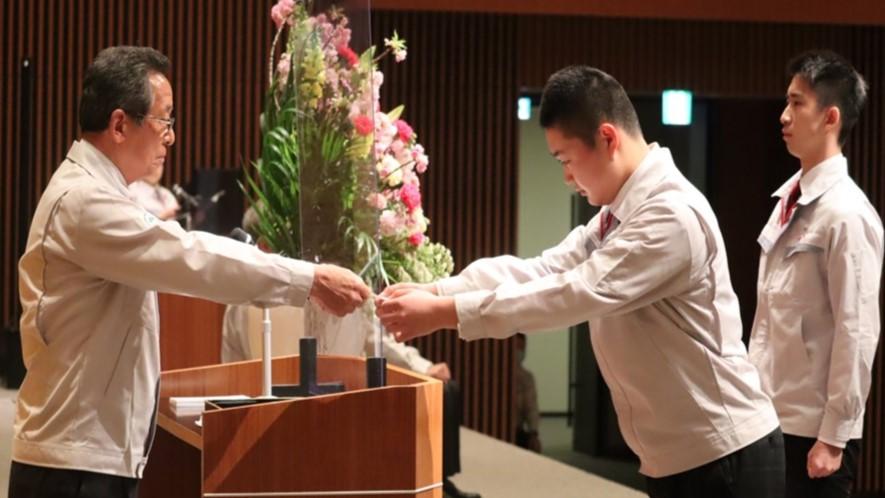
All the young people enrolled at Toyota’s academy live in dormitories away from home.
Days are spent on both academic and technical learning, including welding, sheet-metal working, and other monozukuri skills.
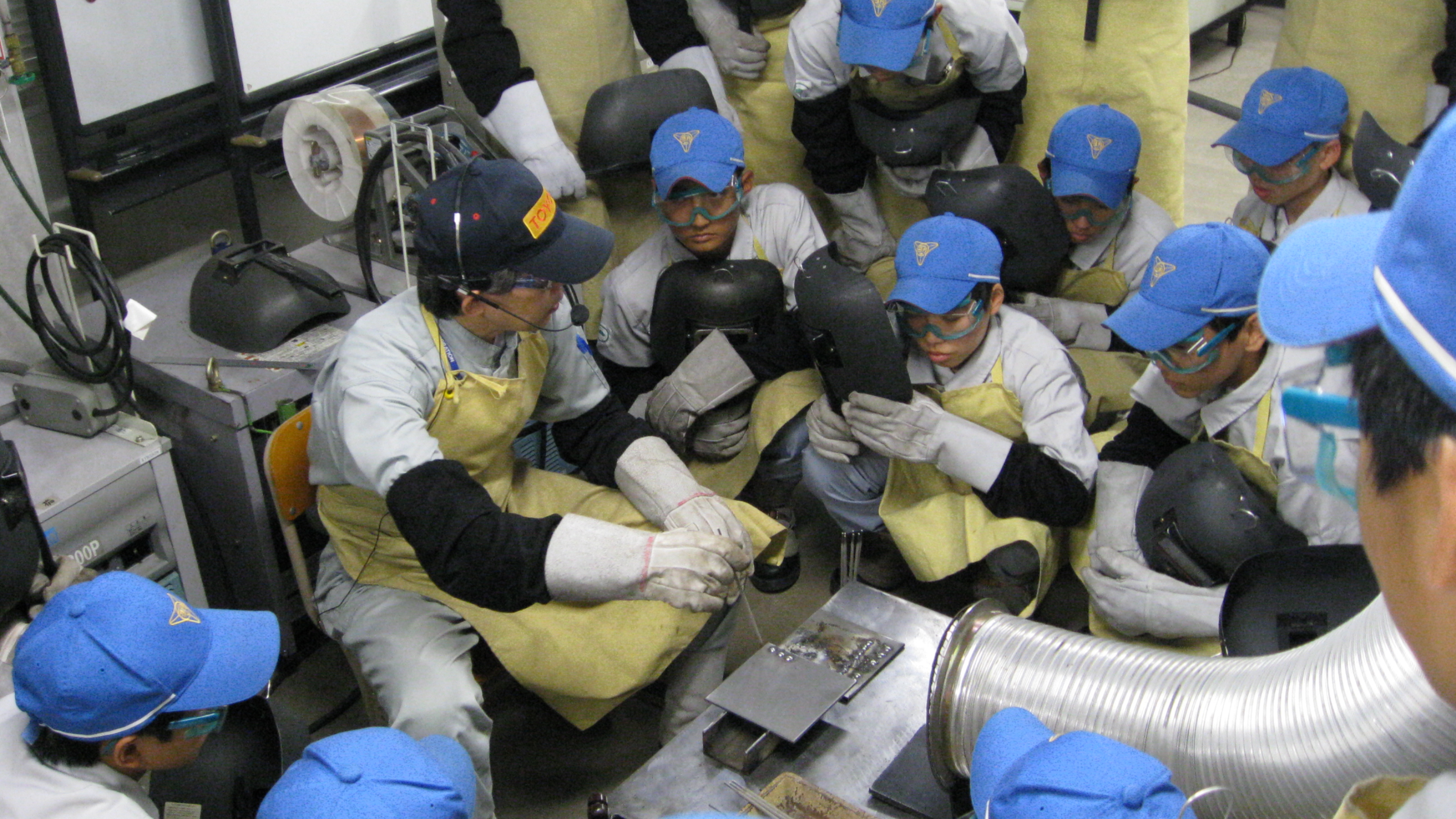
They also engage in team discipline training, from long runs to vocal exercises, aimed at nurturing strong bodies and fortitude.
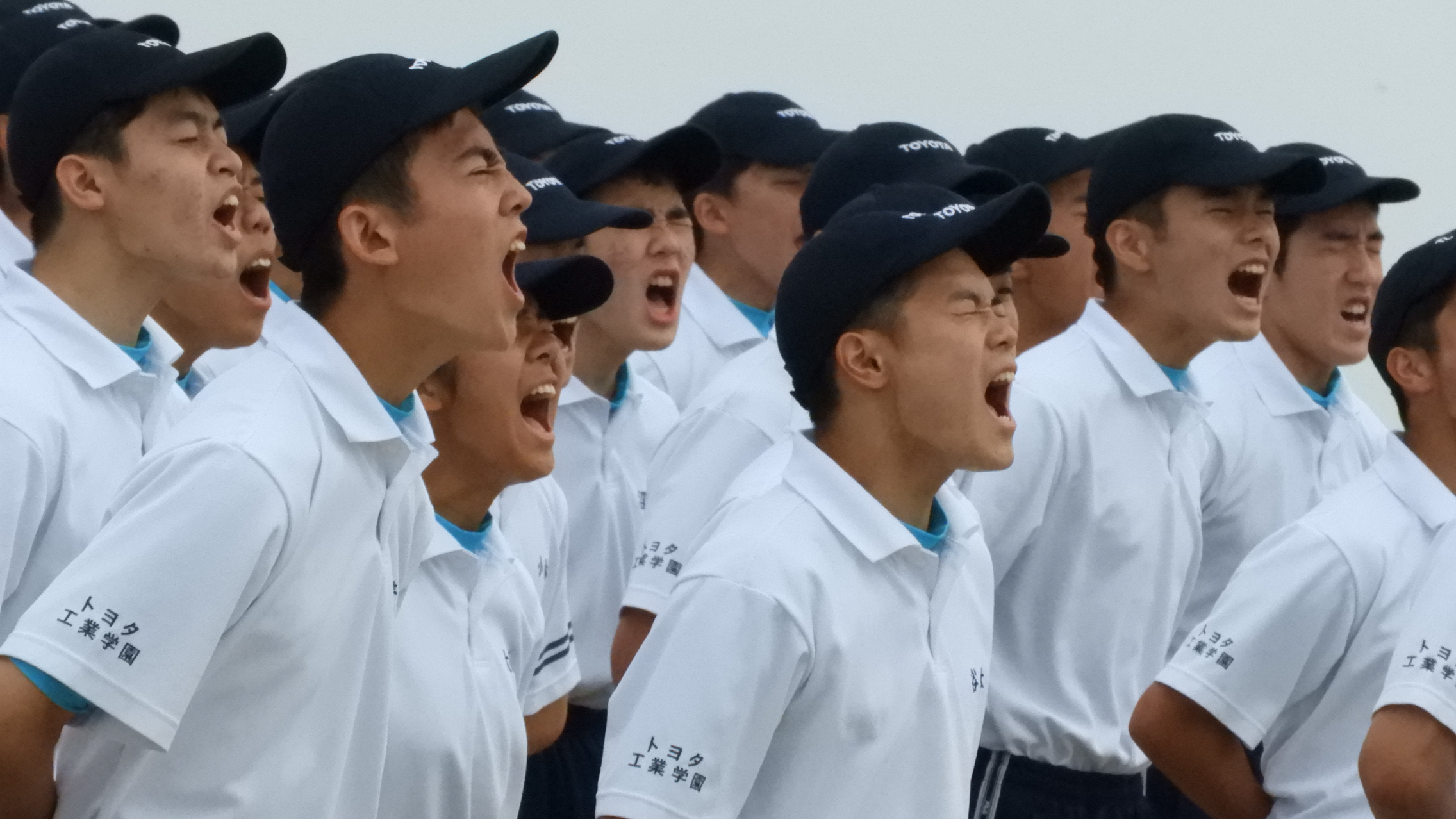
Trainees even take part in endurance swims and multi-day long-distance walks.
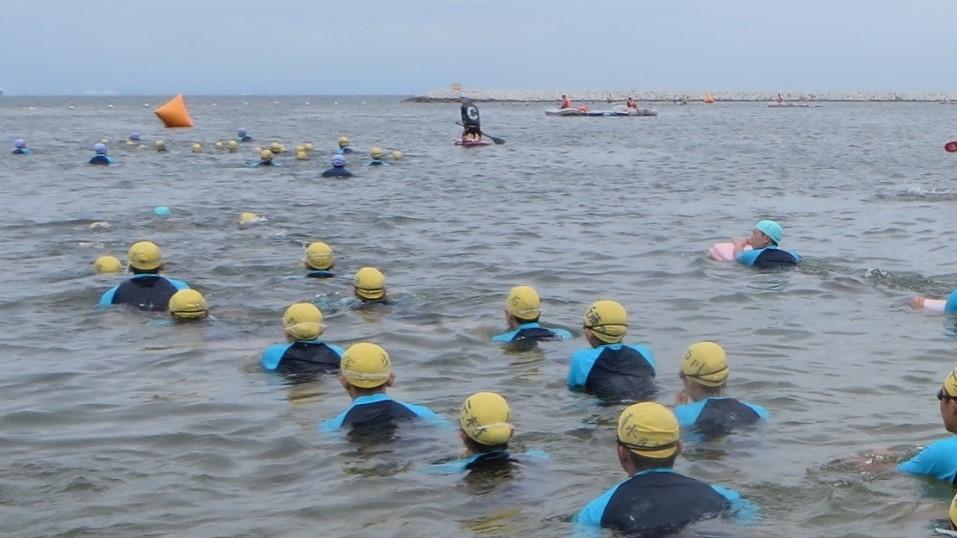
Though this curriculum incorporates a modern education that embraces individual values, at first glance, the rigorous training might look like a relic from a bygone era.
Yet it contains aspects that are essential in developing Toyota’s technicians.
Reasons for the rigorous training
Toyota Times spoke with the academy’s director, Hisashi Yamashita, himself a graduate of the school.
His career as a sheet metal technician included winning gold at international WorldSkills competitions.
Hisashi Yamashita, Toyota Technical Skills Academy Director
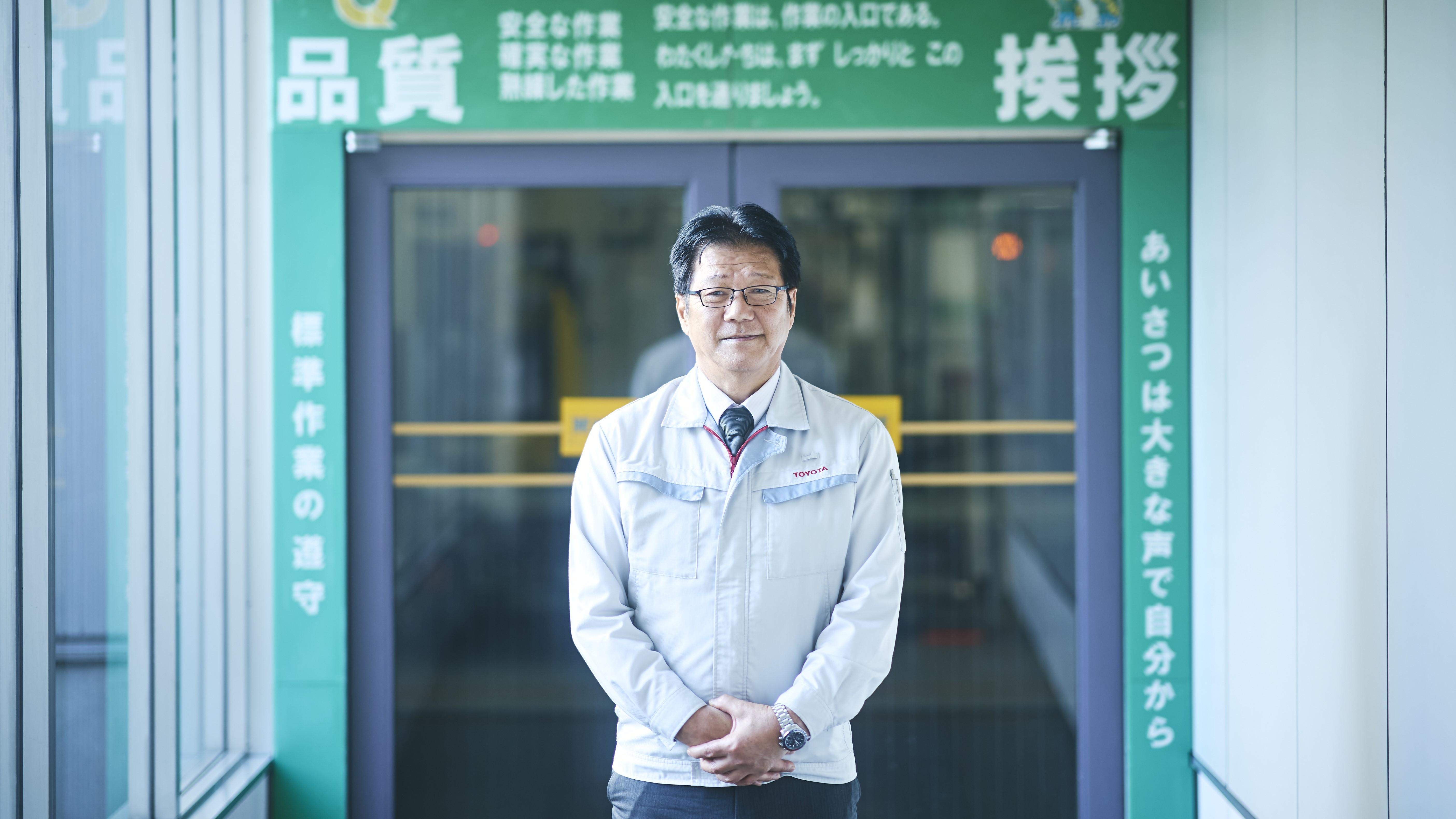
In a genba where many people collaborate to build cars, self-centered behavior can create dangers and accidents that affect colleagues. By teaching trainees to act as a team, we aim to protect workers.
We also want to nurture people who care about making our customers happy and remain committed to quality regardless of the difficulties. I hope they will become professionals who can work hard for someone other than themselves.
That’s part of the reason why we approach their education so rigorously. I believe we must hold on to this spirit of human development.
This mentality is rooted in Kiichiro Toyoda’s philosophy that “monozukuri is about developing people.”
During Japan’s period of rapid economic growth, many companies established in-house training facilities. However, most have since closed due to operating costs and other factors.
Today, the Toyota Technical Skills Academy is one of only four such facilities where students can obtain a high school diploma upon graduation.
It isn’t hard to imagine the considerable costs involved in providing meals, uniforms, and living spaces—as well as salaries—for several hundred people. Despite that, for over 85 years, Toyota has carefully maintained the academy as a place for developing its personnel.
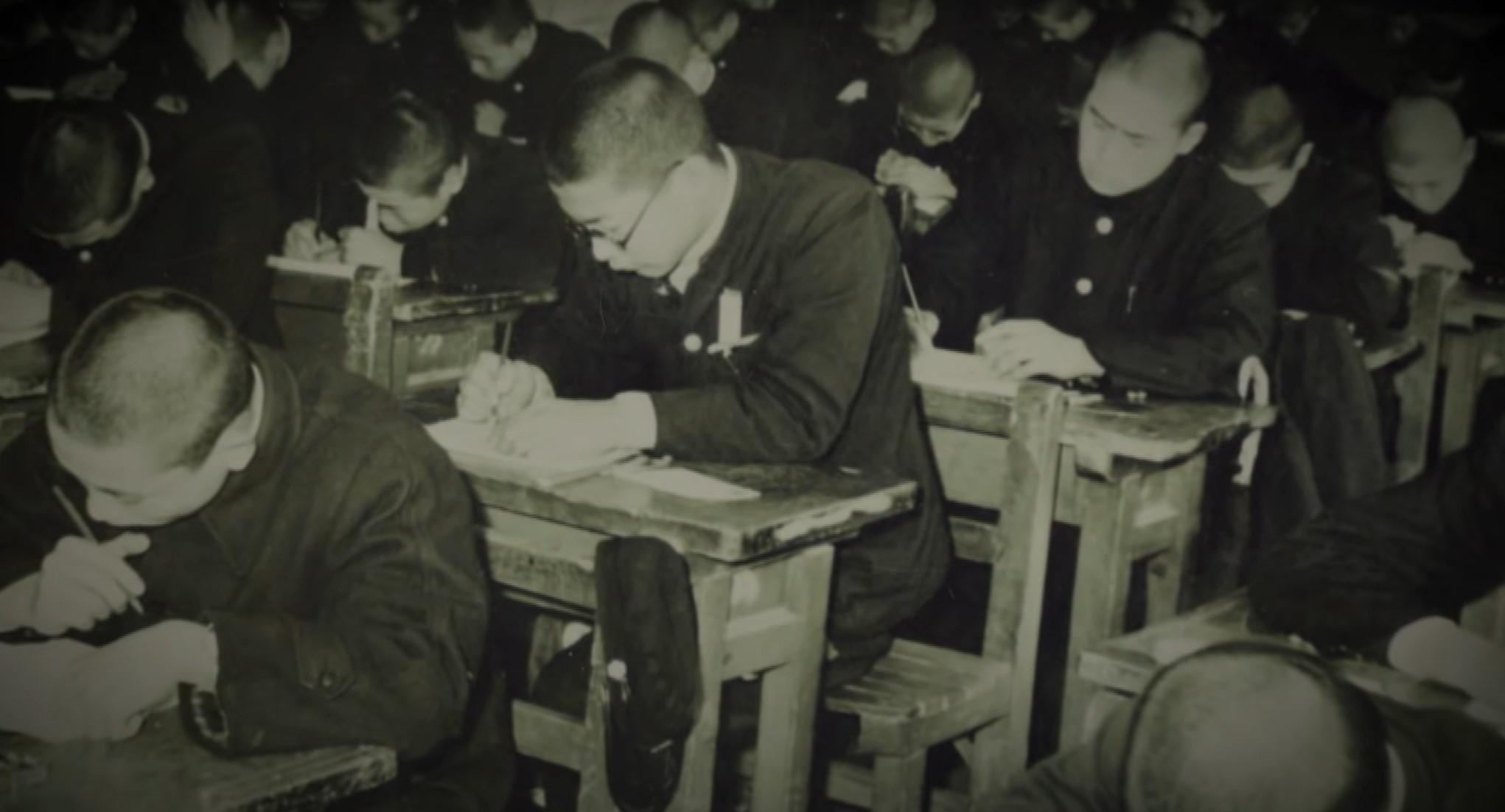
The Technical Skills Academy embodies Toyota’s philosophy that people are not a cost, and monozukuri is about developing people. And this goes beyond the school’s trainees.
At the academy, current Toyota employees serve as instructors in charge of classes and advisors for extracurricular activities.
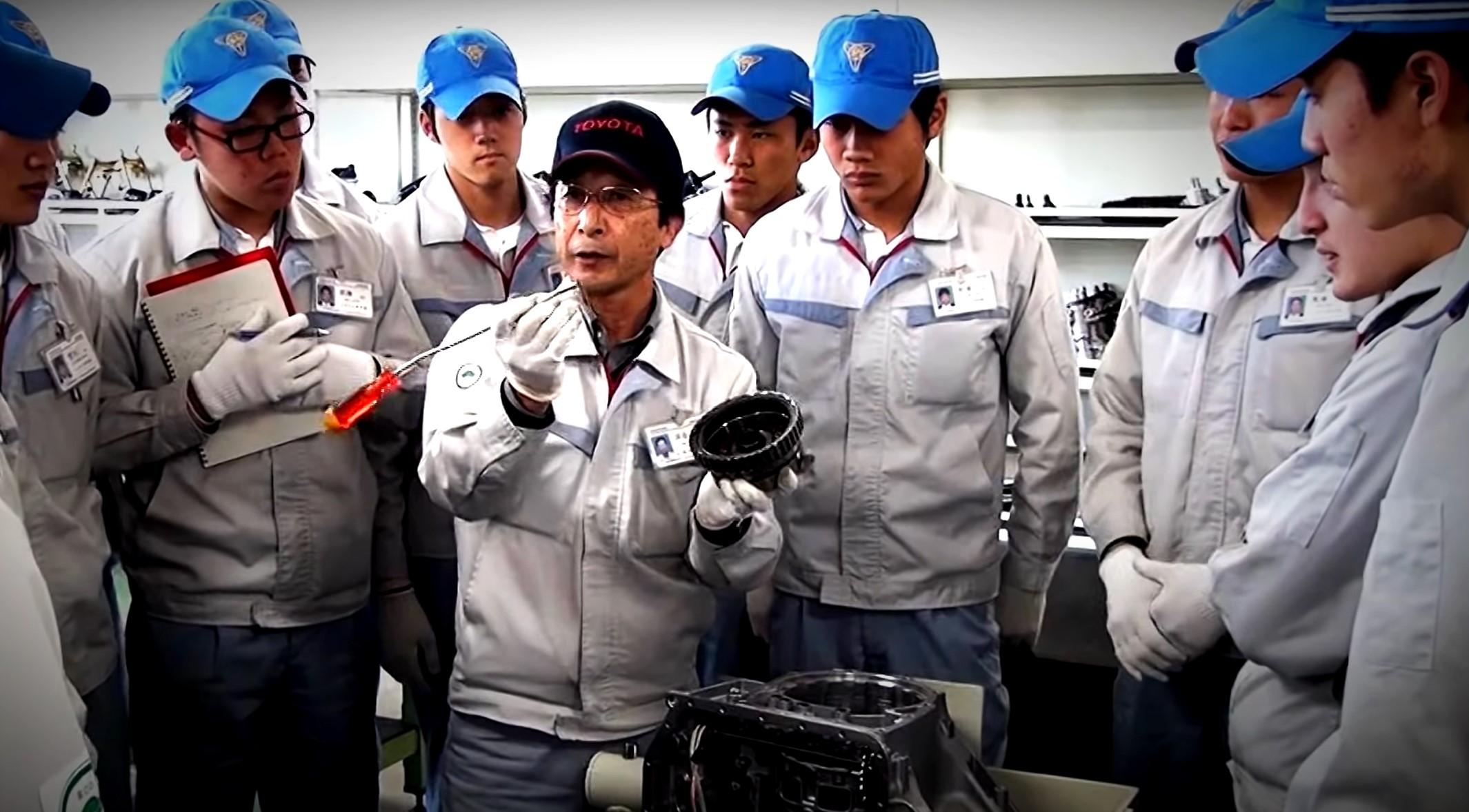
Generally, instructors are selected from among the technicians at Toyota’s various genba to serve on a three-year rotation. Regular employees suddenly find themselves standing before a class. Though rather unusual, these reassignments have a compelling rationale.
The thinking is that frontline technicians should be trained by those with intimate knowledge of the genba where they will work. Those imbued with the monozukuri ethos can provide more passionate, dedicated instruction.
Yet there’s more to it than that. We caught up with a former instructor who one day found himself with a reputation for bending the truth...

